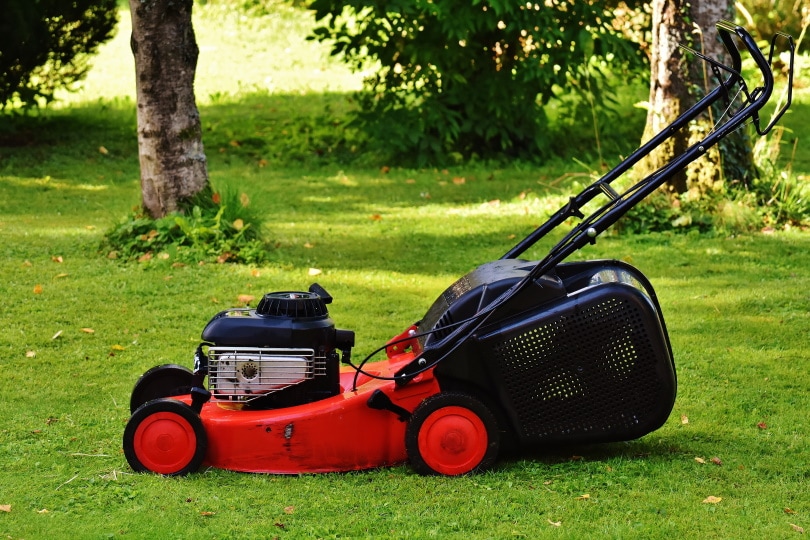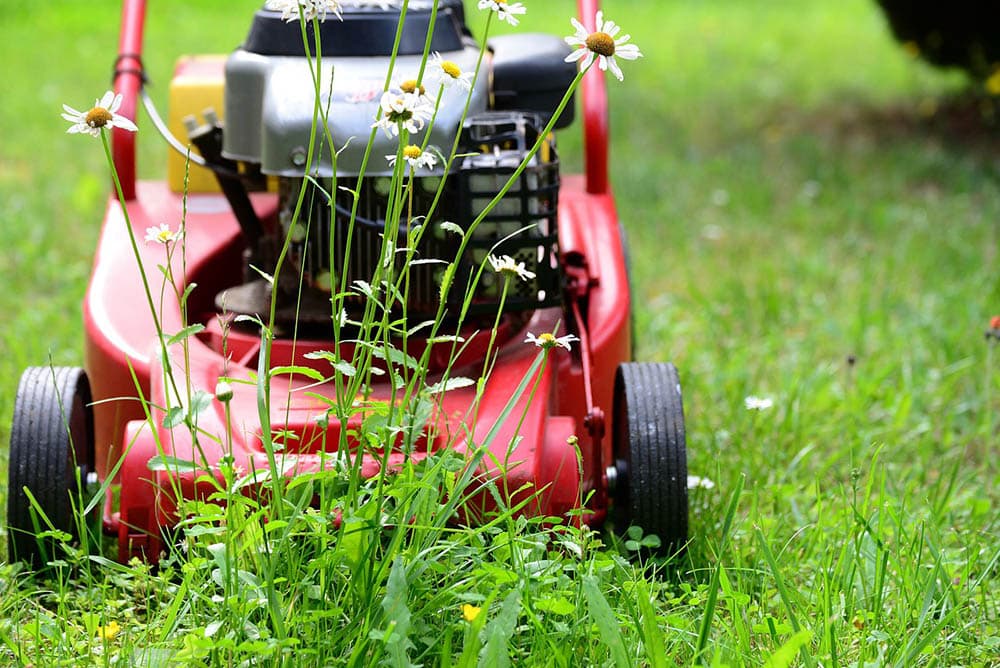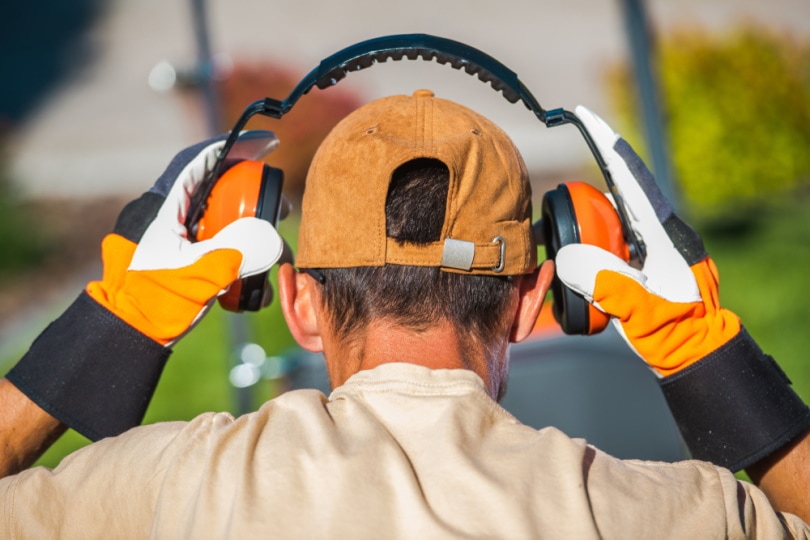How Loud Is a Lawn Mower in Decibels (dB)? With Noise Comparison Chart
-
Pete Ortiz
- Last updated:

It’s normal to be a little irritated by the loud hum of your lawn mower, but have you ever considered just how much it affects your hearing? While many electric lawn mowers are quiet enough to use without worry, your typical gas lawn mower could be chipping away at your hearing with each use, causing permanent and undue damage. A gas lawn mower runs at roughly 85 dB.
A pristine lawn is never worth your hearing! We’ll detail how loud the different types of lawn mowers can get and what you can do to make sure you’re staying safe.
How Loud Is a Lawn Mower?
A gas lawn mower runs at roughly 85 dB, the level at which hearing loss can begin to set in after prolonged exposure. Hearing loss is gradual, cumulative, and often irreversible, so it’s crucial to limit the amount of time that you spend mowing the lawn at this volume. OSHA requires companies to use hearing conservation practices in areas where employees are subject to average noise levels over 85 dB during an 8-hour shift. At this noise level, it’s possible to begin experiencing hearing loss after just 2 hours of continuous exposure.
The quietest lawn mowers are non-powered push reel lawn mowers, which average around 55 dB. It’s equivalent to a coffee machine or humming refrigerator. These lawn mowers are slightly quieter than a typical conversation volume (~60dB), and there is no chance of hearing loss no matter how long you spend mowing your lawn.
At 75 dB, electric lawn mowers are the second-quietest option. These run at roughly the same volume as a vacuum cleaner or coffee grinder. While the noise level may cause some annoyance for the user, it’s unlikely that you’ll experience hearing loss or bother the neighbors.
Riding options are the loudest, with lawn mowers and tractors averaging 90–100 dB. These run about as loud as a belt sander, fire alarm, or subway. At these volumes, it’s possible to start experiencing hearing loss in under an hour.
| dB | Sounds Like … | Hearing Response | |
| Push Reel Mower | 55 | Electric Toothbrush | None |
| Electric Lawn Mower | 75 | Washing Machine | Irritation |
| Gas Lawn Mower | 85 | Heavy City Traffic | Possible hearing loss after 2 hours of exposure |
| Riding Mower | 90 | Motorcycle | Possible hearing loss after 50 minutes of exposure |

How to Protect Your Hearing
The best way to protect yourself from hearing loss when using a lawn mower is to wear ear protection.
Not sure whether you need ear protection? If you have to raise your voice to be heard from only a few feet away, the volume is likely at least 85 dB, and you should either consider wearing ear protection or limiting your time mowing. There are also smartphone apps available to test the decibel level of your lawn mower.
You can decrease the volume by 15–30 decibels with properly fitting ear plugs or ear muffs. That’s often enough to lower the volume of gas-powered and riding lawn mowers to a safe level. To make life more pleasant for you and the neighborhood, you can also try these tips to make your lawn mower quieter:
- Clean or replace the muffler
- Use sound-dampening mats on your lawn mower deck to absorb pings and rattling sounds
- Attach a silencer to reduce engine noises
While these fixes can help substantially cut your lawn mower’s volume, regular maintenance is the best way to reduce the noise and ensure long-term performance. You should change the oil at least once a year and check the air filter and spark plugs every few months. Keep the blades sharpened and tightened and the area free of clippings.

Final Thoughts
Most people wish they had a quieter lawn mower, but it’s not often we consider how much it can permanently affect our hearing. The next time you fire up your lawn mower, take a quick reading of the volume and estimate your mowing time. It could be time for you to invest in a pair of earplugs or change to an electric mower. When it comes to your hearing, you’ll be thanking yourself later for the simple steps you take today.
Featured Image Credit: Piqsels


